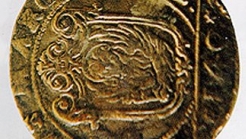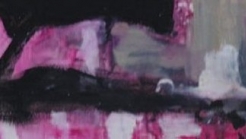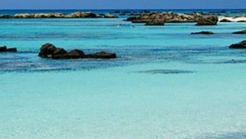

Greece
The Museum of ancient Eleutherna - Homer in Crete is the first archaeological site museum in Crete. The museum created to house the results of the excavations carried out for thirty years in the ancient city of Eleutherna. The originality of this museum is that the objects of the permanent exhibitio
Ancient Eleftherna
Ancient Eleftherna is located 25km southeast of Rethymno, close to the Monastery of Arkadi.
According to tradition, the city was named after Eleutheras, one of the Kouretes, who protected the infant Zeus by beating upon their bronze shields thus preventing his father Cronus from hearing his cries and devouring him.
Current archaeological evidence shows that, Eleutherna was one of Crete’s most important ancient cities, a capital city of the Geometric and Archaic periods – that is, the periods when the Homeric poems were disseminated and recorded in writing. The city minted its own coins in the fourth century BC. In the third century BC, Eleutherna fought against Rhodes and its ally Knossos. In 220 BC, when the Cretan cities fought against each other, Eleutherna sided with Knossos, but a siege forced it to break the alliance. In 68 BC, when the Roman general Metellus attacked Eleutherna, the city managed to resist for some time because of its fortified location, but was finally conquered through treason.
ORTHI PETRA CEMETERY
At Orthi Petra (West side of the hill) archaeologists have uncovered a necropolis dating back to the Geometric Period, along with Roman buildings and streets built on top of earlier constructions.
Among the most important and impressive finds at Orthi Petra is the funerary pyre which dates to the late eighth century (730-710) BC. It belonged to a warrior, a prominent member of the local community, who was cremated at the age of approximately 30.Another important feature is the burial place of four women (aged 70-72, 28, 16, and 13) of a prominent Eleuthernian family, the oldest of which held an important place in local society, as suggested by grave gifts characteristic of her aristocratic lineage and priestly role.
Other rich burials of warriors and other Eleuthernians portray a society very close to that described by Homer: wealthy and extroverted, with frequent and close contacts with the outside world, as indicated by the many artefacts that reached Eleutherna from different places in the Aegean, Cyprus, Asia Minor, and, primarily, the Near East (Phoenicia, Syria) and Egypt.
Museum of ancient Eleutherna
It is a modern building approximately 1,800 sq.m. which together with the surrounding area occupies 3 acres and remotely resembles ark that emerges from the earth, gazing Ida (Psiloritis).
It is divided into two wings with the right one on the ground floor for hosting the guards - ticketing area and the Study Centre in the left area of the exhibition halls of the museum. The architectural project was designed on a human scale, related to the natural environment, while at the same time as modern edifice is absolutely distinct and recognizable of the era in which it was created.
The large surrounding area in front of the museum features, gardens and tree planting small parking for people with disabilities and especially paved surfaces with special provisions. In large wide in space on the east side of the museum has formed a natural outdoor theater for the holding of events and for the enjoyment of nature.Everywhere there are trees, plants and herbs typical of the Cretan flora from antiquity to the present day. The underground spaces throughout the building housed warehouses and modern equipped laboratories.
http://www.mae.com.gr/


The museum was founded in 1967 and opened in September 1993. Housed in a building that exemplifies local traditional architecture and developed at two levels.


The festival of Municipality Irakleios “Crete, a history, five plus cultures” comes from 26 August until 20 September it also this year offers in their Irakleiotes but also in the visitors of city abundance of qualitative events, with dorean entry. The central subject of this year's festival t


A paradise on earth, with opalescent pink sand created by shards of shells and warm water. The entire area is protected by the NATURA program of the EU, as a region of utmost beauty.
1039 Ε 6061 01515 00